Sober living
5 Inspiring Books About Addiction Recovery You Should Read
If you make your entire life about perpetual recovery from addiction, then liquor will always be on your mind by default. It also rests on the premise that an unhealthy attachment to drinking is endemic to a person’s identity, and therefore impossible to get over. The majority of “experts” will tell you that you can never drink again if you’re an “alcoholic.” But in fact, there are people who have transcended addiction and proceeded to drink minimally. There are many reasons for why a person might develop an attachment to drinking that leads to physical dependence. Genetic factors, environmental influences, cultural norms, belief systems, and a lack of alternative coping mechanisms can all factor https://rorbic.ru/in-general/tradicii-i-obychai-yuar-tradicii-i-obychai-yuar-utverzhdennye-prazdniki.html into the risk of developing alcoholism.
Not Drinking Tonight: A Guide to Creating a Sober Life You Love by Amanda E. White
Written by a cognitive neuroscientist with former substance use struggles, Marc Lewis emphasizes the habitual reward loop in the brain that can cause a substance use disorder to develop. This book also examines the brain’s ability to create new neural pathways and lose the desire to use substances. Lewis provides a description of life in recovery that I relate to myself; that sober life is not a life of deprivation, but one of fulfillment, continued growth, and personal development. However, beyond the book that focuses on some key ideas, including changing our beliefs and practicing abstinence, among others, Whitaker aims to change the narrative surrounding alcohol consumption. Here at Findlay, we create a comfortable and safe environment for rehabilitation. Our clients https://clomidxx.com/baby-born-without-an-immune-system-is-finally-allowed-home/ are supported with intensive aftercare and a lifetime recovery community after completing an alcohol addiction treatment program.
Twenty-Four Hours a Day
If you have a problem with substances, it probably makes sense to take an indefinite break and save the “forever” question for later. Repair your body, rebalance your brain, and then decide your future path with a clear mind and a plethora of natural feel-good chemicals coursing through your body. When you conquer alcoholism, you’ll free up the energy that you used to expend on drinking. Regardless of how old you are, texts like Mastery can show you how to awaken your creative passion and find mentors to help you reach the top of whatever field you dream of. While this book does not discuss biochemical repair, it can be extremely liberating to realize that you can shed the “diseased” label and move on with your life. This view is not accepted by most mainstream recovery programs, but Dr. Lewis makes a compelling case that these institutions have lagged behind the times (and the brain science).
Quit Like a Woman: The Radical Choice to Not Drink in a Culture Obsessed with Alcohol
In other words, it’s about drinking too much alcohol and drinking it in a way that causes damage to your own body. This book is for anyone who wants to understand alcoholism, why alcohol problems happen, and what they can do to recover. It can’t be cured by willpower or a “better way of living.” It can only be treated, and it can only be treated with alcohol. Sarah’s writing is sharp and relatable; a more recent, modern voice in the recovery space. So many of us look at “blacking out” as benign, or normal—an indicator of a “successful” night of drinking. In Blackout, Sarah clearly explains why there’s nothing benign about it and describes what is actually happening to the brain when we reach that point of alcohol-induced amnesia.
Mainstream programs often write these people off as “not real alcoholics,” but this is a dogmatic categorization that often fails to account for real physical dependence at an earlier stage of life. Neuro-linguistic programming (NLP) is a fascinating system for reprogramming behavior by altering cognitive associations. This book is the most basic guide for NLP that I have found, and the authors describe how using NLP has changed the lives of people they care about. For some time, I’ve wanted to make a list of the best books for alcoholism. Here I’m going to share with you the books that helped me remold my mind after nearly a decade of severe addiction.
Tired of Thinking about Drinking: Take My 100 Day Sober Challenge by Belle Roberson
This book provides an eye-opening perspective on and insight into how racism and white supremacy can lead to intergenerational trauma. Resmaa Menakem shares the latest research on body trauma and neuroscience, as well as provides actionable steps towards healing as a collective. These insights can introduce a whole new dimension of healing while on a sobriety or moderation journey. One of the first of its kind, Drink opens our eyes to the connection between drinking, trauma and the impossible quest to ‘have it all’ that many women experience. These books can help you understand the nature of alcoholism, understand how and why to deal with an addiction, and help you deal with the setbacks that come with recovery. As such, they can help you to recover and have a happy and fulfilled life without alcohol.
Set Boundaries, Find Peace: A Guide to Reclaiming Yourself by Nedra Glover Tawwab
Blackout is her poignant story of alcoholism and those many missing hours that disappeared when she had just enough to drink to wipe out her memory. Hepola gets through the darkest parts of her story with self-deprecating humor and a keen eye on what she was burying by drinking. The Unexpected Joy of Being Sober explores the role alcohol plays https://mobaon.net/drug-rehab-center-life-saver-for-drug-addicts/ in our world and insights from top neuroscientists and psychologists about why we drink. Discussing alcohol’s impact on our health and minds, author Catherine Gray illustrates how a sober life can truly be intoxicating. Exploring the thoughts of an addict and a life unraveled by narcotics, this memoir spans the author’s struggles with opioid use disorder, to her time in jail, and ultimately to her recovery. High Achiever offers hope and inspiration and a raw and page-turning read.
It is best read one page per day, since each page contains a short passage and explanation of its meaning. This reflective work can allow you to appreciate the value of the present moment, rather than attempting to live in the past or in the future. Julia Ross is a pioneer of nutrient therapy, and this book explains how basic nutrients can be used with great success to cure a number of mental health issues. Texts such as this one do not deny the utility of prescription medications for patients who need them. The premise is simply that using nutrients that our bodies have evolved to use is a safer (and often more sustainable) first approach for treating mood disorders. As a team of experienced medical providers, therapists and counselors, we help you recover in a loving, compassionate environment.
- We offer residential and outpatient services, including Incidental Medical Services with expert in-house providers.
- Whether your goal is to improve your financial situation or not, this book can help you discover the life that you actually want to live.
- Developed by registered dietitians, this book takes a new twist on classic cocktails.
- I’ve since found from experience that the common cold is no match for 10 grams of liposomal vitamin C!
- This is an approachable recipe book using everyday healthy ingredients to make delicious alcohol-free drinks for every occasion.
- This book is unique in the fact that it chronicles his childhood trauma, as well as how it directly related to his first forays into drug and alcohol use.
This includes explaining how you can avoid alcohol problems for yourself, and how you can help others who may have them. My prompts will help you dig deep and sustain change from the inside out. The good news is that regardless of the “root causes”, anyone with this disorder can decide to take control of their biochemistry, psychology, social influences, and spiritual development. It is a disorder that can be permanently resolved using the Bio-Psycho-Social-Spiritual model of recovery.
While mindfulness can help you with many different issues, it can also be used to help you understand and deal with your own self-harming and procrastinating behavior. The book discusses how to do this, and it also discusses procrastination and how to deal with it. Mindfulness can be used to help you see the reasons behind your self-harming and procrastinating behavior, and to overcome it. Have you ever wished you knew what to do about self-harm or procrastination in your life? The Power of Now is an excellent guide to mindfulness, and it helps you to understand what self-harm and procrastination are, why they happen, and how you can deal with them. Contact Findlay Recovery Center today to see how we can support you on the path to sobriety.
Alcohol is highly addictive and life-threatening when abused; therefore, it is extremely important to seek help immediately if you or a loved one is struggling with this addiction. At Asheville Recovery Center treatment specialists utilize a 12-step program and practice holistic rehabilitation. She brilliantly weaves psychological, neurological, cultural, social and industry factors with her own journey. Without scare tactics, pain, or rules, she offers a strategy to give you freedom from alcohol.
Sober living
50 years of Eminem: the rapper who survived addiction and controversy capable of ending any career Culture
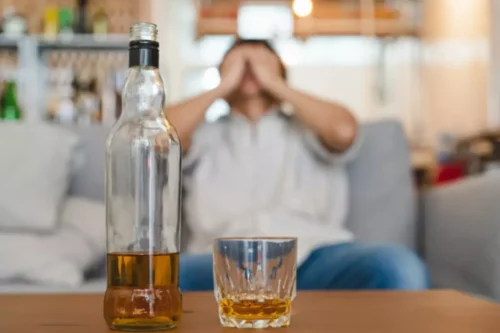
Hence, he resorted to running, which helped him experience a natural high while regulating his sleep at night. The singer acknowledged having an addict’s brain, so he simply recovered by replacing the harmful addiction with a healthier one. Eminem addiction first began when he started using drugs that many used to consider harmless since they were legally available. These drugs largely included prescription opioids, and the singer started using them as he was working long hours with very little time to work in between to rest properly.
Eminem Celebrates 16 Years of Sobriety on 4/20
- He recounted being high on drugs during the recording of his album Encore, a record met with criticism from fans and the media.
- “I just told him what I was doing about the film, that I wanted to ask him about addiction, and that there was no agenda and whatever he wanted to share.
- Mathers’ drug abuse worsened at this time, and he recounted how he had about 10 drug dealers at this time.
Clearly, a man who calls his albums Relapse and Recovery is pretty forthright about his struggle with addiction, but Eminem opens the book even further in the new documentary How to Make Money Selling Drugs. “I got to the point where I knew it was something I couldn’t do on my own,” Gilbert said. “Pissed me off to no end and embarrassed me. I’m a pretty strong-willed person but that was the one thing in my life that I couldn’t get to stick.” In late 2011, he was hospitalized with pancreatitis and was told that if he didn’t stop drinking, he wouldn’t see his next birthday. “I still put it off and was trying to slow down on my own, like, ‘All right I’m only gonna let myself take two pills today. I’m only gonna drink this much of my bottle and make a mark on the bottle,'” he recalled. “And it would work a couple days—and then somebody throws a party.”
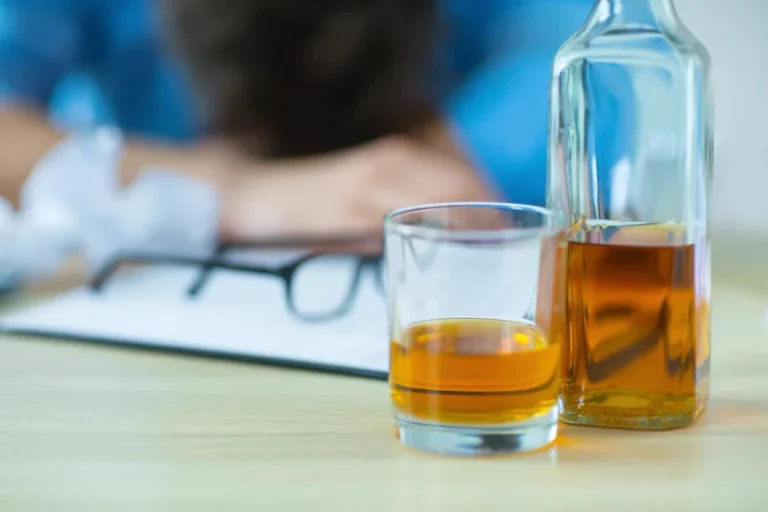
Hours
“Just after Proof died, I was in my house by myself, and I was just laying in bed and I couldn’t move and I just kept staring at the ceiling fan. Eminem’s songs about addiction have had a profound impact on his fans, resonating with those who have faced similar struggles and providing a sense of connection and understanding. His honesty and vulnerability have inspired others to confront their own demons and seek help in their own journeys towards sobriety. Eminem suffered setbacks in his life and personal career before recovering from drug addiction. Encore was received poorly compared to The Marshall Mathers LP, and he relapsed multiple times before and after his methadone overdose. Marshall Mathers, better known as Eminem, is a legendary rapper who has openly shared his struggle with prescription drug addiction.
Utilizing Online Therapy for Co-Occurring Disorders and Dual Diagnosis Treatment
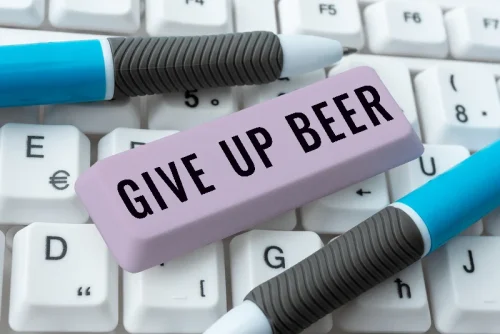
Eminem’s full recovery occurred about 4 years after his first stint in rehab. Now, Eminem is celebrating over a decade of sobriety after long struggles with drug addiction, stemming back to when he created his first album. Growing up in Detroit, experiences with poverty, bullying, and family instability profoundly impacted his mental health and childhood.
Ready to start your recovery journey?
“And it just felt so extreme to have to say, ‘But none?’ But none. If you’re allergic to something or have an anaphylactic reaction to something, you don’t argue with it. So I stopped arguing with it.” “I walk around and I see aspects of it that I’ve never seen before. I’ll look at a building and I’ll go, ‘My God, I never noticed that about that building, those doors.’ I have lunches and coffee and my friends.” And after quitting the drug, he soon turned to alcohol—only to also quit that dependency. “And then you would just reach that moment where you’re like ‘Wow, I shouldn’t have had that last beer,'” the actor continued. However, in the midst of her struggle, her college coach Anson Dorrance was there to support her. The two-time FIFA Women’s World Cup champ has been open about her misuse of Adderall while battling injuries during her college soccer career.
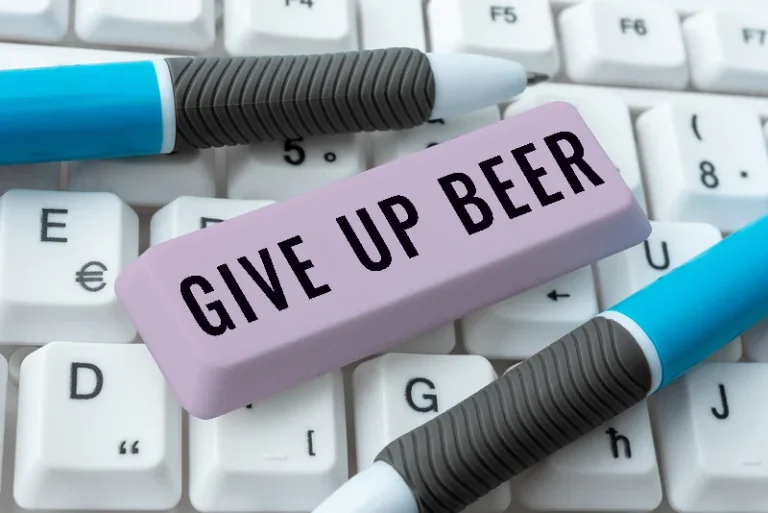
“I had what I call a white light experience where I saw myself either dead or losing everything that meant anything to me,” he continued. He had to sit down then-fiancée Meg Ryan amphetamine addiction treatment and explain what was going on. “Drinking caused weight gain,” he told Today in September 2022, “but it also weighed down my mental state.” After publicly celebrating six years of sobriety on tour in 2018, the singer stunned fans later that same year with the release of the confessional single “Sober,” which revealed that she had relapsed.
Things I Hate About You Ending Song
Eminem has spoken openly about the importance of seeking help and support when battling addiction, emphasizing what drugs was eminem addicted to the need for self-reflection, honesty, and perseverance in the recovery process. He encourages others to confront their demons and take steps towards healing and self-improvement. After an incident in Newport Beach where the Olympic swimmer tried to kick in his own hotel room door, Lochte made the decision to seek treatment in 2018. “Ryan has been battling from alcohol addiction for many years and unfortunately it has become a destructive pattern for him,” his rep told E!
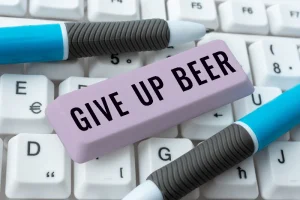
Anxiety Medication Addiction
After all, the Grammy winner shared that he has been sober for 16 years. The lesson is particularly important for children who are xsquick to idolize celebrities. For some, his intense lyrics are fun and comical but can be relatable to many people currently in similar situations. Within a month of being released from the hospital, Eminem had a relapse. ‘I was so scatterbrained that the people around me thought that I might have given myself brain damage. Eminem also performed at the 37th annual Rock and Roll Hall of Fame induction ceremony, opening with a version of his 1999 song ‘My Name Is’ and following it with ‘Rap God’ and ‘Sing for the Moment’.
Sober living
What is Sobriety? Understanding Your Path to True Freedom?
The dry drunk syndrome (DDS) may sound like an oxymoron, but this syndrome is genuine and is more common than one might think. The term “dry drunk” is used to describe a person who has stayed away from alcohol for some time but continues to behave as if he or she is still addicted. While this is an easy version of sobriety to apply to other people, the reality is that this definition does not account for the physical and mental changes that accompany detox and addiction recovery. Together, these definitions of sobriety can help to create a layered and more flexible understanding of what sobriety is and how it affects people living with alcohol or drug addiction.
- In the midst of this, maintaining open lines of communication becomes a lifeline, offering a safe space for the recovering individual to share their challenges and victories.
- All of this can be frustrating if you have a loved one in recovery.
- Also, drinking in moderation is not closely related to being sober because even a light amount of alcohol will make its way to your bloodstream.
- Her event series called Club SÖDA NYC stands for Sober or Debating Abstinence and features panels, writing workshops, and sober retreats.
- Embracing sobriety means adopting habits that promote a healthier, more fulfilling life.
Health Benefits of Being Sober Curious
Yet, supporting someone who is a dry drunk is absolutely paramount, if there’s ever any chance of that person’s eventual successful recovery. While anyone who’s gone through treatment is prone to relapse, the dry drunk may be more likely to suffer a relapse because they’ve not fully committed to recovery. In their mind, they still harbor the desire to drink and engage in the same type of alcoholic behavior that got them into trouble in the first place.
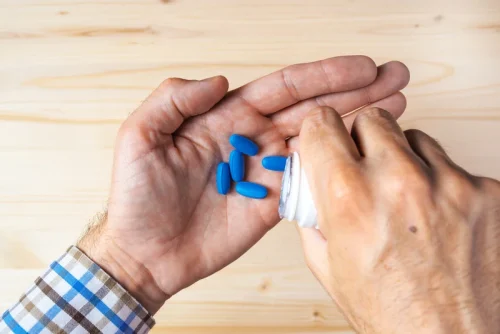
Dry Drunk Syndrome and Alcohol PAWS: Dealing With Behavior Patterns
- Make sure you’re prioritizing your own self-care throughout their recovery process.
- Being a sober person means you practice complete abstinence from drugs, alcohol, and other addictive substances.
- Many people in recovery face emotional triggers – like anxiety, depression, anger, or sadness – that can tempt them to relapse.
- The American Psychiatric Association recommends avoiding stigmatized language when referring to mental health conditions.
- That can be because of substance abuse issues or you just want to live healthier.
In a society where so many social events revolve around the consumption of alcohol, it may be difficult to say “no” when Twelve-step program friends ask you to join them at a bar. But if you’re sober curious, you can remind yourself that there are many ways to socialize that don’t involve drinking, like seeing a movie or playing a sport. “The sober curious movement has led people to see the unhealthy habits that can go hand in hand with alcohol consumption,” she says.
How Can I Achieve and Maintain Being Sober and Clean?
As someone who is personally journeying through recovery, Ben’s work is not only rooted in professional knowledge but also enriched by his own experiences. His commitment to sharing stories of hope and resilience has established him as a credible and respected figure in the addiction treatment community. Helpful tips for staying sober, as identified in scientific research, include participating in Alcoholics Anonymous (AA) and Twelve-Step Facilitation (TSF) programs.
CBT sober alcohol meaning teaches patients how to cope with negative thoughts and emotions. This type of treatment is effective because it focuses on changing unhealthy behaviors rather than simply treating the underlying causes of those behaviors. For example, someone with a gambling problem might learn how to manage urges to gamble by practicing techniques that allow him or her to resist impulses. Alcoholism is one of the most common mental health disorders in the world, affecting millions of people worldwide. Whether you love an addict or you are one, this does not have to define you. This article offers some practical tips for alcoholics in recovery and relationships and living well with a recovering alcoholic.
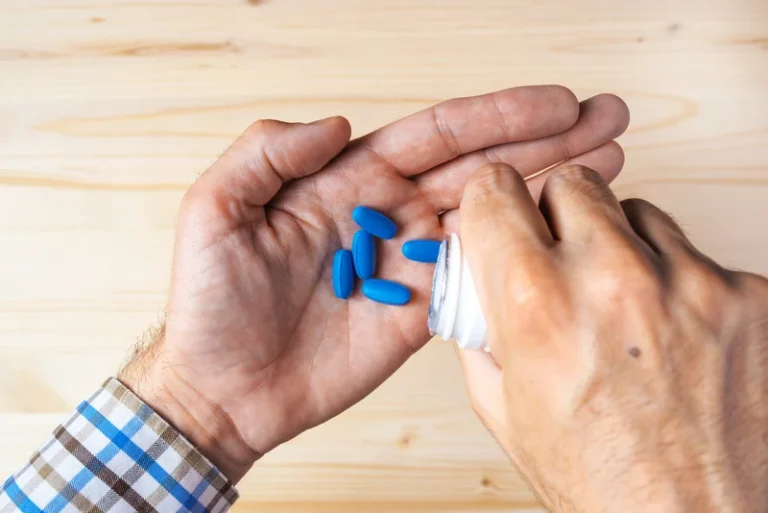
If you slip into heavy or binge drinking, potential health benefits can quickly become outnumbered by averse affects. Of course, sobriety is a process, and you may slip up along the way. If you do have a relapse, it’s important to get back on track as soon as possible and continue working towards your goal of sobriety. The second definition is more commonly used when discussing sobriety as a lifestyle choice. By Buddy TBuddy T is a writer and founding member of the Online Al-Anon Outreach Committee with decades of experience writing about alcoholism.
Some of the immediate changes you will need to make will be obvious—like not hanging around the people that you used with or obtained drugs from. After all, you can’t hang around your drug dealer or old drinking buddies and expect to remain sober for very long. Post-acute withdrawal syndrome (PAWS) involves withdrawal symptoms that persist past the detox period. Such symptoms are often related to mood and may include irritability, anxiety, depression, sleep problems, and fatigue.
Sober living
8 Ways to Support a Loved One Struggling With Addiction GRAND Mental Health

A number of health conditions can often go hand in hand with https://ecosoberhouse.com/ AUD. Common mental health conditions that co-occur with AUD are depressive disorders, anxiety disorders, trauma- and stress-related disorders, other substance use disorders, and sleep disorders. Studies show that people who have AUD are more likely to suffer from major depression or anxiety over their lifetime.

Setting Healthy Boundaries in Relationships
Fortunately, it is very easy to obtain facts about alcoholism and the different types of alcoholics. You can do some research online to drug addiction treatment better understand how the disease works. While these tips can help, they do not replace professional medical detox, which is crucial for a safe and effective recovery.

How do I stop drinking?
Always seek help proactively, even if you’re not sure you have a serious problem. BetterHelp can connect you to an addiction and mental health counselor. So you’ll probably need some help either to cut down and control your drinking or stop completely, and also some plans to maintain the improvement after that. If you have become dependent on alcohol, you will support for alcoholics have found it difficult to fully control your drinking in some way.
- Partners of people who have substance use problems can suffer greatly.
- Members advise one another on how to support and encourage a loved one to seek the treatment they need.
Family Resources

Substance use disorders affect biological functioning, dominating the brain’s reward system, affecting emotional regulation, motivation, impulse control, and pleasure-seeking behaviors. The brain and body become dependent on an outside substance to create feelings of happiness and well-being—and, at advanced stages of the disease, to simply maintain the ability to function. Often, individuals battling addiction feel isolated and misunderstood. Communicating your support is paramount, making it clear that your love and assistance are unwavering.
Be prepared for recovery support to be a lifelong process
Remain calm when confronting your teen, and only do so when everyone is sober. Explain your concerns and make it clear that your worry comes from a place of love. Contact us for support and to learn more about how to help someone with addiction. Genetics plays a significant role in addiction susceptibility. Certain genetic variations can increase an individual’s risk of developing addiction.

How to Help an Addict Who Doesn’t Want Help
Some individuals may use drugs or alcohol as a way to self-medicate to alleviate symptoms of these underlying mental health issues. While getting sober is an important first step, it is only the beginning of your recovery from alcohol addiction or heavy drinking. Just as some people with diabetes or asthma may have flare-ups of their disease, a return to drinking can be seen as a temporary setback to full recovery and not as a failure. Seeking professional help can prevent a return to drinking—behavioral therapies can help people develop skills to avoid and overcome triggers, such as stress, that might lead to drinking. Most people benefit from regular checkups with a treatment provider.
- Whether it’s a close friend or family member, helping someone struggling withdrugoralcohol addictionis often a long and heartbreaking journey.
- AA meetings and similar groups allow your loved one to spend time with others facing the same problems.
- And you don’t have to wait until you hit rock bottom; you can make a change at any time.
- Being in a close relationship with someone who is actively using alcohol or other substances can be very challenging.
- The symptoms listed above may be a sign of a severe form of alcohol withdrawal called delirium tremens, or DTs.

While you can’t shelter your loved one from situations where alcohol is present, you can avoid drinking with or around the person. When you spend time together, try to suggest activities that don’t involve alcohol. Residential treatment or “rehab” facilities provide intensive treatment for alcohol abuse or addiction.
-

 Venture Capitalist Firms5 years ago
Venture Capitalist Firms5 years agoA Failing Grade
-

 Venture Capitalist Firms5 years ago
Venture Capitalist Firms5 years agoSome Email Stats
-
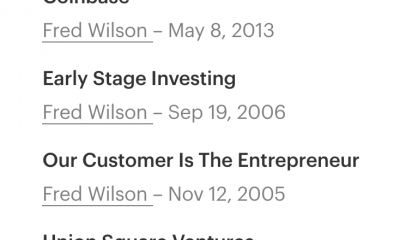
 Venture Capitalist Firms4 years ago
Venture Capitalist Firms4 years agoMost Read Blog Posts
-

 Investors5 years ago
Investors5 years agoShifting corporate responsibility to consumer resilience
-
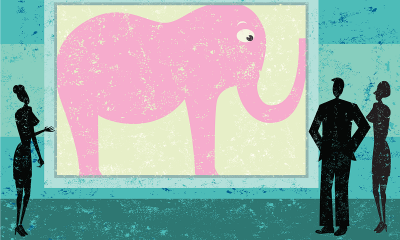
 Investment5 years ago
Investment5 years agoChinese Government Bonds: The Elephant in the Room
-
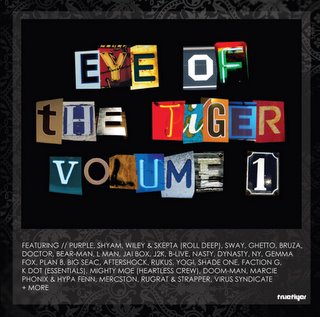
 Investors5 years ago
Investors5 years agoLast Days of The True Tiger Blog!!
-

 Venture Capitalist Firms2 years ago
Venture Capitalist Firms2 years agoDear SaaStr: What Percentage of Software Sales Reps Have Earned Over $1m a Year?
-
Venture Capitalist Firms5 years ago
Investing In Learning

